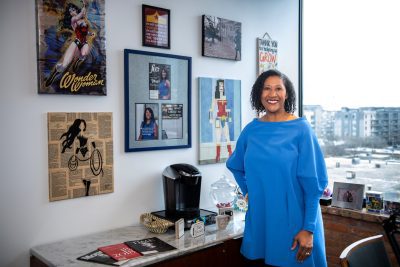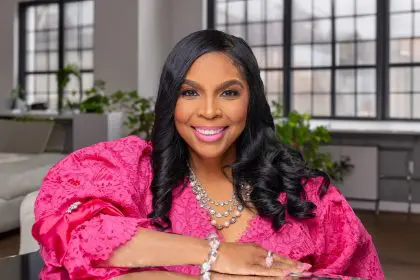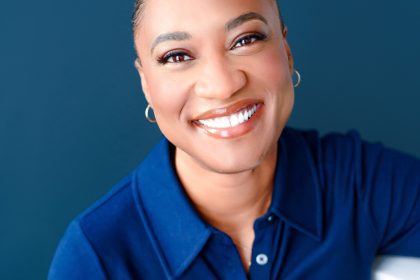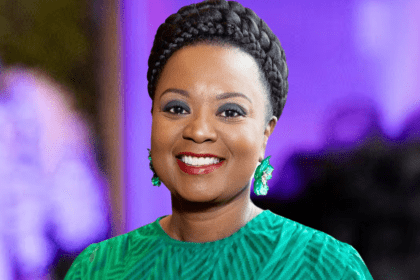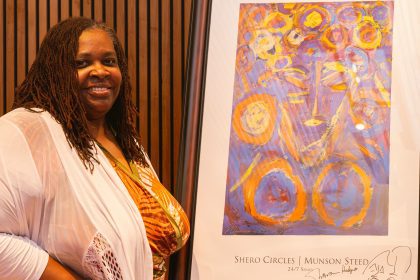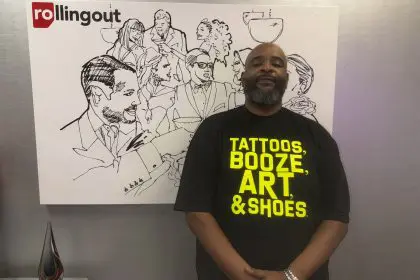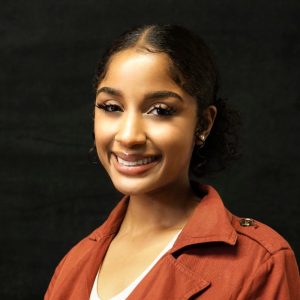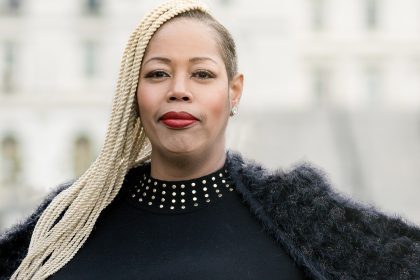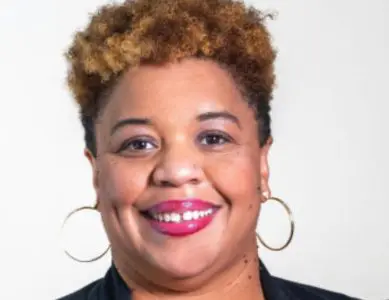Sandra M. Moore is the managing director and chief impact officer at Advantage Capital. Moore has the power to financially change the trajectory of Black entrepreneurship through Advantage Capital managing $4.1 billion like a Sister with Superpowers. She is creating a safe space for venture capitalists to include diversity and equity in their formula of success.
The intimate conversation was hosted by US Bank leaders Greg Cunningham, chief diversity officer and Gunjan Kedia, vice chair of wealth management and investment services. The discussion surrounded the racial wealth gap in America.
Moore opened up about her life’s work and her experience during the event.
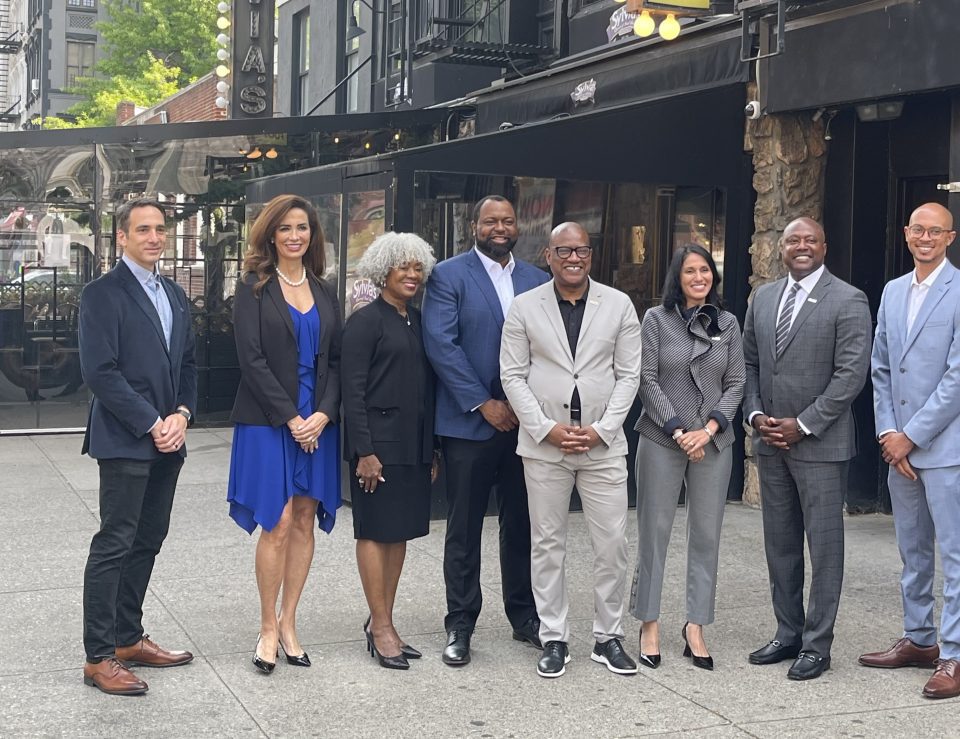
Talk about your mission and why you were here today.
My mission is to make certain that we are driving capital to communities where it would not ordinarily go. Correspondingly that is the mission and vision, at Advantage Capital. I answered that way because, for me, my personal mission has to align with my business mission. In this case, it does. We are a private equity investment firm with mobile growth capital, both debt, and equity, in that very lower middle market. [These are] Companies that are willing to grow, have the ability to grow, the will, and as we call it the skill to grow in distressed urban and rural communities.
When you say mid-market, how many millions is that?
We typically are investing in companies that have between five and twenty million in top-line revenue. Now, that doesn’t mean that we don’t sometimes go lower and sometimes we go higher, but that’s right where we are. Our typical investment size is between two and six million. Obviously, these are not the tiniest of companies but these are solid businesses that have a growth hiccup. They used all the collateral that they have, they have a growth opportunity, and they used all their friends and family’s money. In the instance of Black and Brown businesses, they generally haven’t had any prints and found family money. They’ve grown, they’ve bootstrapped their growth, and they’ve hit a place where they aren’t quite ready for primetime capital from banks. They are not in the sightline of big private equity companies that come in and invest deeply on either coast in certain select areas like the Austin of the Southwest, but they have a growth opportunity if they can get capital in the format and/or time that they need it. That’s our market and that is what we do. That’s how we are identified: as impact investors, because we go and drive our capital to those places where we would not otherwise go because of the kind of investing structures.
You spoke on the need for change in the area of foundations and philanthropy. Can you expound on that, please?
It’s very pointed in my observations about the need for foundations and endowments to get more aggressive in investing in these kinds of businesses. They are riskier endeavors than I’ve known foundations and endowments to take in their investment portfolios. However, I will say that it is worth it. When investing in these companies and generating the growth that they can, our firm invests in about 100 of these kinds of deals every year. Right now I can track 67,000 jobs supported around the country because of the high-wage, high-opportunity, high-performance jobs supported because of that. If foundations and endowments will come with us and take more risk by providing capital to invest in those companies, the outcome can far outweigh the risk. We do that now. With public-private partnerships largely with governments, we need philanthropy and endowments to join us in that mission.
U.S. Bank had a conversation about the role you play. What role has U.S. Bank given you?
U.S. Bank is extraordinarily aggressive in biting into the wealth gap at every juncture and it was a deep pleasure to be in the room to have the conversation about closing the wealth gap. They are at the cutting edge of what it takes to change the trajectory of capital going to Black and Brown business with my company, Advantage Capital, and with the fund we just launched. I laid on the launch of Empower the Change at U.S. Bank, a limited partner in and again putting their money into the fund or investment in minority-owned businesses. In addition to that, US Bank is one of our primary investors in Advantage Capital and the things that we invest in. They invest in us so that we can invest in those small to mid-market businesses in distressed urban and rural communities. They invest with us so that we can invest in affordable housing and they invest with us so that we can invest in solar and clean energy, again in distressed and rural communities. They are just a shoulder to the wheel with a kind of aggressive impact investor, like we are, to get money flowing into deals, projects, and geographies that otherwise wouldn’t talk about the system. A system with superpower and finance.
If you could speak to Spelman, Howard, and Morehouse, how would you challenge young Black people to have careers in finance and law?
I would do exactly that: I would challenge them to rush into these fields if they have an interest in a new vehicle for change. Understanding how capitalism fuels growth, which is the underpinning of what understanding what finance is all about. The new chariot, to ride and drive change, and there are simply not enough women of color and men of color in the fields. I’d say take a look at it and take a look at finance, as part of the aspect of your MBA. Take a look at the opportunity to understand banking, investing, and private equity as a way to choose a role for change that has really proved our tagline and advantages. Capital changes lives and understanding how capital changes lives is critically important. I would encourage our young people to look at it differently than they have in the past.
What would you describe as your superpower?
I would say that it is the willingness to take risks for change. I came into this business, I’m a lawyer by training, and I spent a lot of years on the social science side of this business. I walked into this business, knowing very little about complex finance structures, knowing a lot about what those complex finance structures can do to change communities. I knew from the ground up, what would change communities and I had to backfill my understanding of how finance plays to that. I spent the first couple of years with a big notebook writing notes and studying night and day, and I think it is that willingness to jump at an opportunity and take risks. I had an idea in my mind about change and a way to capsulize that is to say, I’d worked for years in the government and the not-for-profit sectors at the pinnacles of leadership. I will not deny that, but I came to understand that to change for the long term, the things that I cared about such as comprehensive community development, affordable housing, early childhood education, growth, economic growth, and business growth for Black and Brown communities, that was going to take private money. When given an opportunity to join private money and figure out how to do that I took it highly risky. If that’s a superpower, I’d say that that is it: Take the risk to get the change you want.

